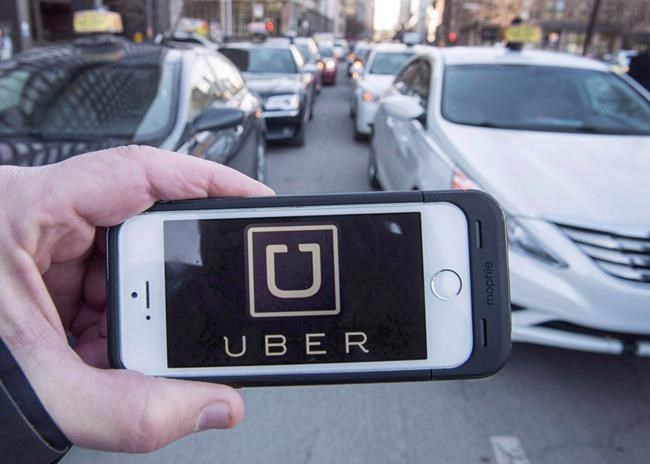 The B.C. Liberals set the tone for how the ride-hailing revolution would be handled in this province. They ignored it for as long as possible.
The B.C. Liberals set the tone for how the ride-hailing revolution would be handled in this province. They ignored it for as long as possible.
Then they tried to play catch-up by slapping a new regime in place and promising to open the doors as quickly as possible. Then they decided they needed further consultation.
The NDP criticized all those moves. But now it is well on the way to continuing the dithering. Hearings under way this week suggest there are enough problems to agonize over that it will be a year or more before Vancouver can shed the embarrassment of being the largest city in North America without any recognized ride-hailing.
The urban legend of the tech investor who gets off the plane at YVR ready to invest in B.C., tries to grab an Uber, discovers there’s no such thing, so goes back home in bafflement grows day by day.
Considering that all three parties in the legislature promised ride-hailing would be here by Dec. 31, 2017, it’s a remarkable record of accomplishment, in terms of accomplishing nothing.
All the dilly-dallying stems from the fact the politicians are waiting to find a way to do the impossible. They’re trying to meet public demand by welcoming a disruptive new technology, without creating any disruption.
The NDP’s biggest move to date on the file shows how ludicrous the situation is. They hired an outside expert — Dan Hara — and started a closed-door consultation process that’s focused almost exclusively on just one of the affected sectors: the taxi industry.
The hearings this week are a kind of counterbalance to that, in the sense that they are at least public. They’re being held by the legislature’s Crown corporations committee.
What does the Crown corporations committee have to do with ride-hailing? Not much. But Green Party Leader Andrew Weaver is on it, and he broke some ground last year by getting the NDP to agree to refer the issue there. The politically powerful taxi industry, which is largely behind the big stall on ride-hailing, showed up this week to tell MLAs presumably at least part of what they’re telling Hara privately. But so did a few other people.
One of them was Benn Proctor, who wrote a public-policy master’s thesis on the taxi industry three years ago. It focused on Vancouver, but was applicable to the rest of B.C. as well. At that point, the Metro Vancouver taxi industry was one of the worst-performing markets in North America, measured by service, fares, wait times, availability and ride refusals (where drivers refuse trips to the burbs because they have to deadhead back downtown).
Proctor told MLAs this week it’s only got worse since then, because other Canadian cities have allowed ride-hailing, while B.C. has been left behind. Now working for a Washington, D.C., think-tank, Proctor finished his study as an ardent advocate for ride-hailing.
He assured MLAs that it would bring big benefits to passengers, cut fares by 15 to 25 per cent and ease the single biggest failure of the taxi industry — the long wait times during peak weekend nights. Traffic would be more efficient, time would be saved and cities would get greener.
He said if the quality improved, the overall business would grow and the new supply would create its own demand.
It would create new jobs, although he noted “these will never be high-paying jobs.”
The key part of his message, for politicians preoccupied about what ride-hailing would do to the taxi industry, was that existing drivers would not necessarily see a material decline in their income. Although fares would decline, he said, their fee to lease vehicles — up to $180 a day — would also decline.
But even he had to acknowledge there would be one big loser if ride-hailing comes in — the taxi owners. Provincial taxi licences cost $200. But they’re so rarely issued that the secondary market for them runs to the hundreds of thousands of dollars.
That’s where the disruption comes in. The owners would have big investments disrupted and they aren’t shy about letting the MLAs know about it.
So seven years after they started knocking on B.C.’s door, it looks as if the ride-hailing firms still have a long wait for a government to open it.



